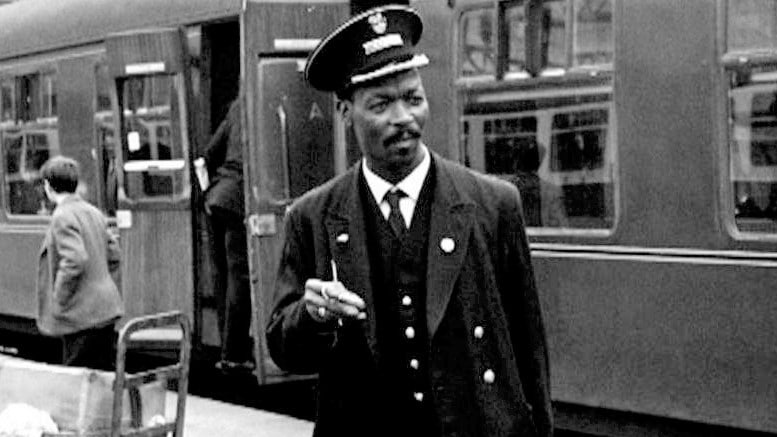
October 2020 is Black History Month. To mark the occasion, a plaque was unveiled at Chatham station in honour of Asquith Xavier, the pioneer for black equality who successfully broke the racist ‘colour bar’ at Euston station over 50 years ago.
Asquith Xavier who was a Chatham resident and a guard with British Rail, played a key role in ending the colour bar which prevented black people from working in public facing roles.
Asquith was already an experienced guard at Marylebone station when he applied for a job at Euston and his case is often seen as a precursor to the Race Relations Act in 1968, which made it illegal to refuse employment to people because of their ethnic background. In 2016, the BBC spoke to Asquith’s family as a plaque was unveiled at Euston in his honour.

Asquith successfully campaigned to end the racial discrimination practiced by British Rail which helped to bring in the 1968 Race Relations Act, making it illegal to refuse housing, employment or public services to ¬people because of their ethnicity.
Representatives of Asquith’s family, station operator Southeastern, Network Rail and the RMT trades union were present at the waiting room on Platform 1 at Chatham station where the commemorative plaque, funded by all three organisations, was revealed for the first time.


David Wornham, passenger services director for Southeastern, said: “In the four decades since Asquith’s passing, we have made important progress in securing equality for people in the workplace, but as recent events have highlighted, there is a lot more work to do for society as a whole, which is why Southeastern has fully supported a colleague network for its Black, Asian and Minority Ethnic (BAME) colleagues alongside other network groups in order to make sure we are always listening to our colleagues’ concerns.
“This plaque in Asquith’s memory here at Chatham will be an important reminder of what has been achieved, and in particular Asquith’s own part in that, not just for today’s generation but future generations too.”

Loraine Martins, Network Rail’s director of diversity and inclusion for Network Rail, added: “This plaque for Asquith Xavier is a fitting tribute to his efforts in overturning the unofficial colour bar in 1966 and becoming the first black worker employed as a train guard at London Euston station. A plaque already exists at Euston station in his memory and I’m delighted that his hometown of Chatham can now remember his achievement.
“Network Rail is fully committed to being a company where each individual is valued, respected and encouraged to reach their full potential. In keeping with his memory, we’re working hard to ensure our workforce better represents our customers and society as a whole.
“We will continue to make the best use of our people’s talent and capabilities to provide real opportunities for their professional development.”

RMT general secretary Mick Cash commented: “Today we remember the brave actions of Asquith Xavier and those National Union of Railwaymen officials such as Jimmy Prendergast who supported him in a campaign, which eventually defeated the colour bar at Euston station. We owe so much to those who challenged racism on the railway in an era when it was all pervasive.
“The union remains eternally vigilant in the fight against racism and it is important we remember Asquith Xavier and those trade unionists who blazed a trail for us over five decades ago.”
Camealia Xavier-Chihota, Asquith’s granddaughter, summed up the day: “It is a proud moment for our family that Network Rail and Southeastern Railway have come together to pay a special commendation to Asquith Xavier in honour of his contribution to our multi-cultural society. We would like to thank all of those involved in facilitating the production of this plaque.”
“It will be a place where we can bring our children to be educated about his pioneering ways and for the general public to learn of a regular man who achieved extraordinary things by speaking out against discriminatory practices, not only for himself but for others.”


Be the first to comment